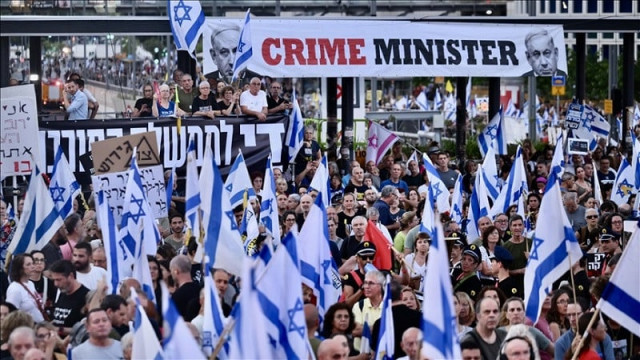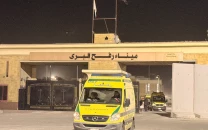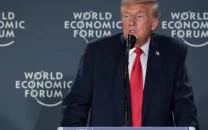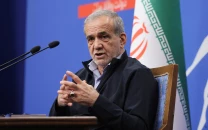Two Israeli rights groups accuse Tel Aviv of genocide
A spokesperson for Israel's military did not immediately respond to a request for comment

Two Israeli human rights organisations said on Monday Israel was committing genocide against Palestinians in Gaza, the first major voices in Israeli society to level the strongest possible accusation against the state, which vehemently denies it.
Rights group B'Tselem and Physicians for Human Rights Israel released their reports at a press conference in Jerusalem, saying Israel was carrying out "coordinated, deliberate action to destroy Palestinian society in the Gaza strip".
"The report we are publishing today is one we never imagined we would have to write," said Yuli Novak, B'Tselem's executive director.
"The people of Gaza have been displaced, bombed and starved, left completely stripped of their humanity and rights." Physicians for Human Rights Israel focused on damage to Gaza's healthcare system, saying: "Israel's actions have destroyed Gaza's healthcare infrastructure in a manner that is both calculated and systematic".
Israel has fended off accusations of genocide since the early days of the Gaza war, including a case brought by South Africa at the International Court of Justice in the Hague that Prime Minister Benjamin Netanyahu condemned as "outrageous".
A spokesperson for the Israeli government called the allegation made by the rights groups on Monday "baseless". "There is no intent, (which is) key for the charge of genocide ... it simply doesn't make sense for a country to send in 1.9 million tons of aid, most of that being food, if there is an intent of genocide," said spokesperson David Mencer.
A spokesperson for Israel's military did not immediately respond to a request for comment.
Accusations of genocide have particular gravity in Israel because of the origins of the concept in the work of Jewish legal scholars in the wake of the Nazi Holocaust. Israeli officials have in the past said using the word against Israel was libellous and antisemitic.
When Amnesty International said in December that Israel had committed genocidal acts, Israel's foreign ministry called the global rights group a "deplorable and fanatical organisation".
The 1948 Genocide Convention, adopted globally after the mass murder of Jews by the Nazis, defines genocide as "acts committed with intent to destroy, in whole or in part, a national, ethnic, racial or religious group".
PALESTINIAN PLIGHT GAINING ATTENTION
At a Jerusalem cafe, Carmella, a 48-year-old teacher whose grandparents survived the Holocaust, said that she was distressed over the suffering an hour's drive away, inside Gaza.
"It feels difficult to me as an Israeli, as a Jew, to watch those images and feel anything but tremendous compassion and horror, to be honest. I feel horror." International attention to the plight of the Palestinians in Gaza has intensified in recent weeks, with UN agencies saying the territory is running out of food for its 2.2 million people.
Israel, which controls all supplies in and out of Gaza, says it has let enough food in, and blames the UN for failing to distribute it. Israel shut off all supplies in March for nearly three months, reopening the territory in May but with restrictions it says are needed to prevent aid from ending up in the hands of fighters.
Footage widely broadcast in other countries of destruction and casualties in Gaza is rarely shown on Israeli TV. That has been changing, with recent images of starving children having a little more impact, said Oren Persico from The Seventh Eye, a group that tracks trends in Israeli media.
"It's very slowly evolving," he said. "You see cracks." But he did not expect the genocide allegation would spark a major shift in attitudes: "The Israeli perception is: 'what do you want from us? It's Hamas' fault, if it would only put down its weapons and (release) the hostages this could all be over'."



















COMMENTS
Comments are moderated and generally will be posted if they are on-topic and not abusive.
For more information, please see our Comments FAQ